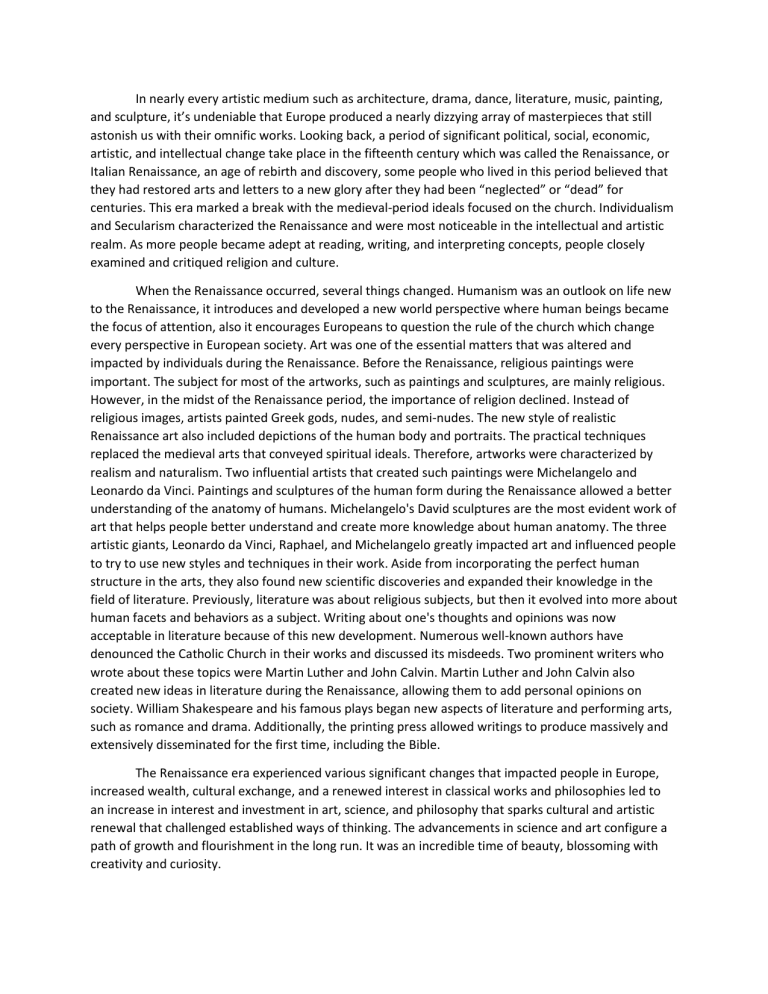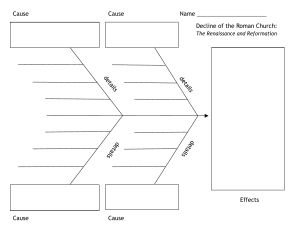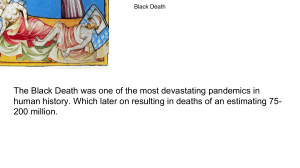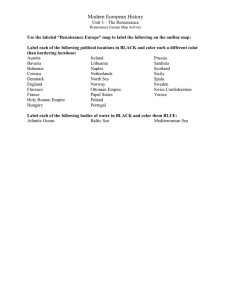
In nearly every artistic medium such as architecture, drama, dance, literature, music, painting, and sculpture, it’s undeniable that Europe produced a nearly dizzying array of masterpieces that still astonish us with their omnific works. Looking back, a period of significant political, social, economic, artistic, and intellectual change take place in the fifteenth century which was called the Renaissance, or Italian Renaissance, an age of rebirth and discovery, some people who lived in this period believed that they had restored arts and letters to a new glory after they had been “neglected” or “dead” for centuries. This era marked a break with the medieval-period ideals focused on the church. Individualism and Secularism characterized the Renaissance and were most noticeable in the intellectual and artistic realm. As more people became adept at reading, writing, and interpreting concepts, people closely examined and critiqued religion and culture. When the Renaissance occurred, several things changed. Humanism was an outlook on life new to the Renaissance, it introduces and developed a new world perspective where human beings became the focus of attention, also it encourages Europeans to question the rule of the church which change every perspective in European society. Art was one of the essential matters that was altered and impacted by individuals during the Renaissance. Before the Renaissance, religious paintings were important. The subject for most of the artworks, such as paintings and sculptures, are mainly religious. However, in the midst of the Renaissance period, the importance of religion declined. Instead of religious images, artists painted Greek gods, nudes, and semi-nudes. The new style of realistic Renaissance art also included depictions of the human body and portraits. The practical techniques replaced the medieval arts that conveyed spiritual ideals. Therefore, artworks were characterized by realism and naturalism. Two influential artists that created such paintings were Michelangelo and Leonardo da Vinci. Paintings and sculptures of the human form during the Renaissance allowed a better understanding of the anatomy of humans. Michelangelo's David sculptures are the most evident work of art that helps people better understand and create more knowledge about human anatomy. The three artistic giants, Leonardo da Vinci, Raphael, and Michelangelo greatly impacted art and influenced people to try to use new styles and techniques in their work. Aside from incorporating the perfect human structure in the arts, they also found new scientific discoveries and expanded their knowledge in the field of literature. Previously, literature was about religious subjects, but then it evolved into more about human facets and behaviors as a subject. Writing about one's thoughts and opinions was now acceptable in literature because of this new development. Numerous well-known authors have denounced the Catholic Church in their works and discussed its misdeeds. Two prominent writers who wrote about these topics were Martin Luther and John Calvin. Martin Luther and John Calvin also created new ideas in literature during the Renaissance, allowing them to add personal opinions on society. William Shakespeare and his famous plays began new aspects of literature and performing arts, such as romance and drama. Additionally, the printing press allowed writings to produce massively and extensively disseminated for the first time, including the Bible. The Renaissance era experienced various significant changes that impacted people in Europe, increased wealth, cultural exchange, and a renewed interest in classical works and philosophies led to an increase in interest and investment in art, science, and philosophy that sparks cultural and artistic renewal that challenged established ways of thinking. The advancements in science and art configure a path of growth and flourishment in the long run. It was an incredible time of beauty, blossoming with creativity and curiosity.


